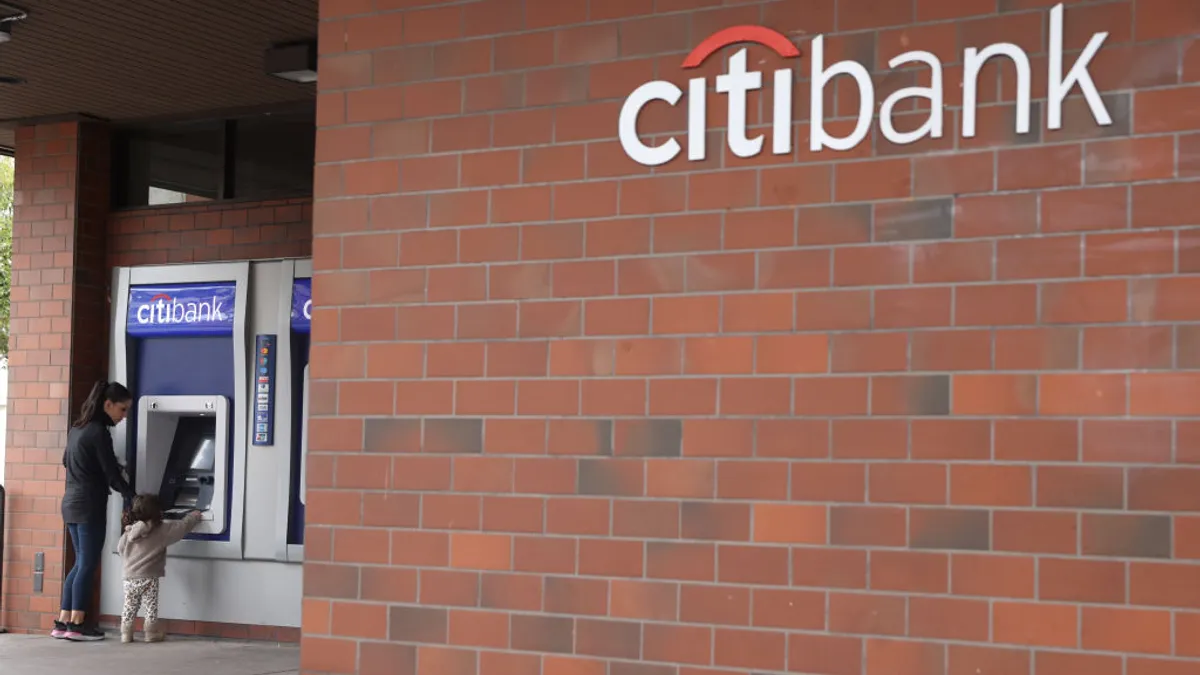The Office of the Comptroller of the Currency’s chief operating officer (COO) — and soon-to-be acting comptroller — defended the lack of regulatory support and timing of the agency's final rule that would reform the Community Reinvestment Act (CRA) during a call with the media Wednesday.
The briefing took place after the agency released its final 372-page overhaul to a 1977 anti-redlining law that governs lending in low-income neighborhoods.
Comptroller Joseph Otting, who announced his resignation Thursday, will leave the agency May 29, and be replaced by COO Brian Brooks.
Otting, who has made CRA reform a top priority since joining the agency in 2017, was absent from Wednesday's briefing and the OCC refused to answer questions regarding media reports of his departure.
The final rule, which the OCC says is aimed at "strengthening and modernizing" the CRA, comes without the support of two other key banking regulators: the Federal Reserve and the Federal Deposit Insurance Corp. (FDIC).
The latter released a proposed revamp along with the OCC in December, but FDIC Chair Jelena McWilliams on Wednesday said, while her agency "strongly supports the efforts to make the CRA rules clearer, more transparent, and less subjective," it "is not prepared to finalize the CRA proposal at this time."
"The FDIC recognizes the herculean effort community banks are making to support America's small businesses and families during this challenging time and encourages financial institutions to work constructively with borrowers affected by COVID-19," she said in a statement.
When pressed by reporters on the OCC’s decision to move forward without the FDIC, Brooks called the agency’s statement "generally supportive."
"We've worked very closely with them through this week on iterations of the rule," said Brooks, who previously served as an executive at OneWest Bank and chief legal officer at crypto exchange Coinbase. "The OCC manages most of the largest banks in the United States, and that presents a separate set of priorities from the FDIC that focuses on small bank regulation and resolutions."
It would be incorrect to conclude the FDIC won't participate in the future, Brooks said, adding the issue is an "open dialogue item with them."
Some advocacy groups, however, don't agree with the OCC's assessment.
Jesse Van Tol, CEO of the National Community Reinvestment Coalition, called the OCC's lack of lock-step with fellow regulators an "administrative fiasco."
"This is an awkward, disjointed and rushed move by a single agency that couldn't get agreement from the two other agencies that regulate banks within the same administration," he said in a statement. "The OCC should have been able to agree and work with the other two agencies that oversee enforcement of the same law. It couldn't. It failed."
The American Bankers Association (ABA) also expressed concern with regulators' inability to move in concert on CRA reform.
As a trade group that represents banks of all sizes and charters, the ABA advocates for "clear and consistent rules for all banks," the organization's president and CEO, Rob Nichols, said in a statement.
"The fact that only one of the three federal banking regulators overseeing CRA has adopted this final rule means it does not meet that goal," he said.
Another trade group, the Consumer Bankers Association, praised the revamp, saying the OCC and Otting "should be commended for attempting to bring an analog regulation into a digital world."
Poor timing?
The decision to finalize the rule ahead of Otting's departure, as well as amid the coronavirus pandemic, has met pushback from Democrats and community groups.
House Financial Services Committee Chairwoman Maxine Waters, D-CA, one of Otting's sharpest critics, blasted the OCC's decision to move forward with CRA reform during a time when the nation's focus is elsewhere.
"It is simply outrageous that in the midst of the Coronavirus pandemic and on his way out the door, Comptroller Otting has rushed out a final Community Reinvestment Act (CRA) rule that will be harmful for so many communities across the country at a time when they are under severe distress due to the pandemic," Waters said in a statement. "Congress will not let this final rule stand."
Otting, however, has argued the pandemic has accelerated the need for CRA reform.
"The coronavirus pandemic has only made it more dire that communities — particularly [low- and moderate-income] neighborhoods — need more capital and better access to credit. And they need it now," the comptroller wrote in an op-ed published Wednesday in American Banker.
Van Tol said the rushed reform creates a "regulatory mess" that Otting "isn't sticking around to fix."
"This final 372-page set of rules came just six weeks after the close of the public comment period, a record-breaking pace, and a day before Comptroller Otting resigns from the agency," he said.
In a press release, the California Reinvestment Coalition said, "The hastiness of the process calls into question whether the public comments were fully considered."
But Brooks said he has no concerns the agency hurried to finalize the rule.
"This was two and a half years of work and ideation and conceptualization with major substantive changes, reflecting real openness to comments from all stakeholders," Brooks said. "We really believe this is going to help accelerate the delivery of credit to the most distressed communities. Does anybody really want us to delay that?"
The rule
The final rule, which was revised after the OCC said it received more than 7,500 comments, raises the asset thresholds for banks and adds a distinction between small and intermediate-sized banks.
Among the rule's major changes are new data collection requirements, which won't go into effect for several years.
The rule also takes into account the rise of digital banking. Banks will be evaluated on the areas where they have significant deposits and not just the areas around a physical branch.
The small-bank asset threshold would be raised to $600 million, up from $500 million in a joint proposal with the FDIC in December, and the intermediate threshold will be raised to $2.5 billion. Community banks that fall below a certain asset threshold can decide whether they want to opt in to the new rule or continue with the old one.
The rule is set to go into effect in October, but OCC-supervised banks will have two years before the new evaluation standards are live, the regulator said.




















